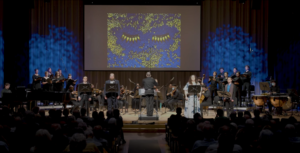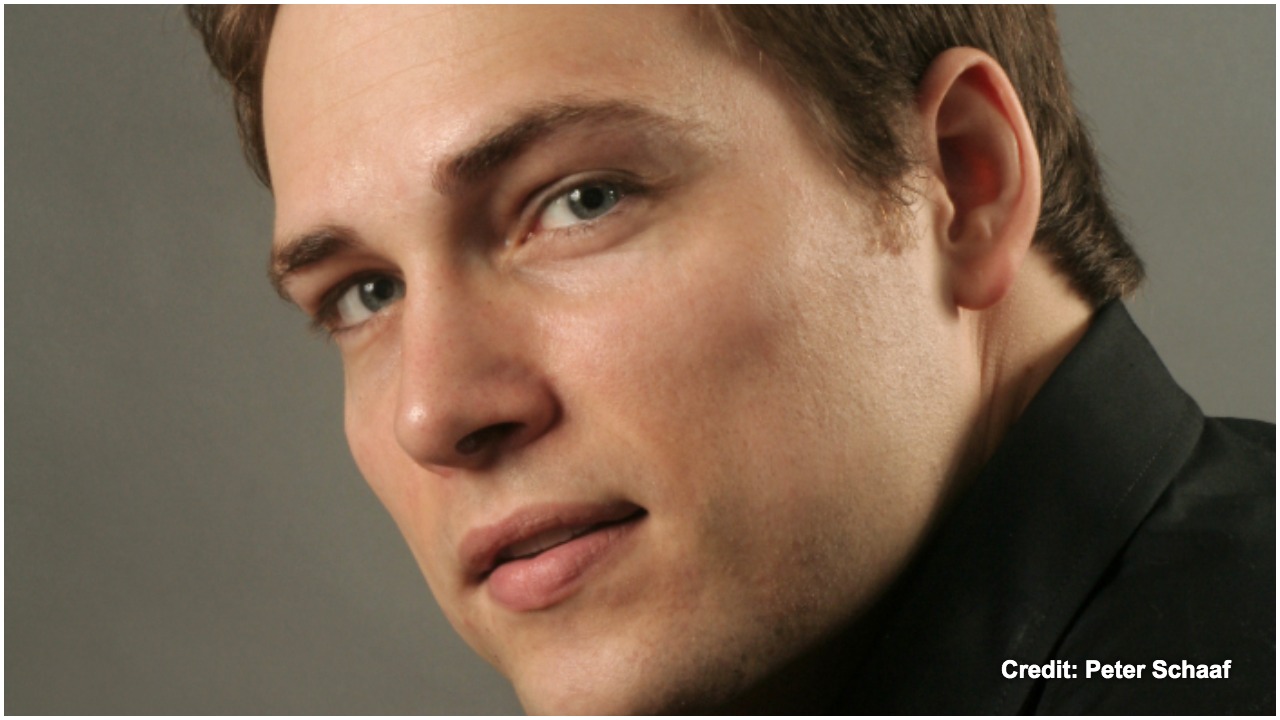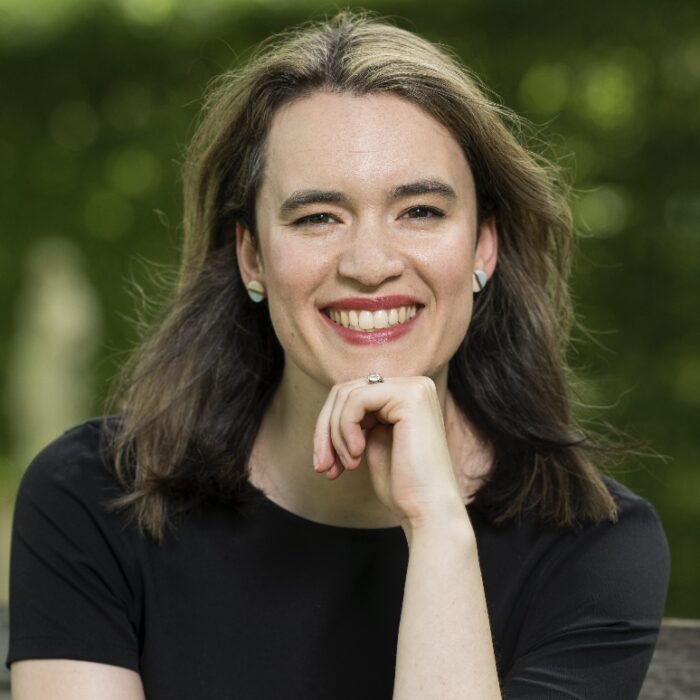
Q & A : Ashkenaz Festival Artistic Director Eric Stein on Reviving ‘Bas Sheve’ & the Importance of Jewish Representation
By John VandevertOnce considered lost since its premiere in 1924 Warsaw but miraculously rediscovered in 2017 by German Musicologist Dr. Diana Matut while digging through the archives of Yale University Library, the Yiddish-language opera “Bas Sheve” (the first known opera in the Yiddish language) finally received its North American premiere at the 2022 Ashkenaz Festival.
Dubbed one of the “largest and most prestigious showcases of Jewish music and culture anywhere in the world,” this biennial display and celebration of global representations of Jewish and Yiddish music and culture is a hotspot for musicians, artists, arts-lovers, and newcomers to the world of Jewish music. Hence, since its first re-premiere in 2019 by Germany’s Yiddish Summer Weimar Festival, thanks to the detailed work of Klezmer musician and composer Joshua Horowitz and Toronto-based Yiddishist Michael Wex, it was unclear if the world was ever going to get the chance to hear Henekh Kon (original composer) and Moishe Broderzon’s (original librettist) groundbreaking work again. But, thanks to grants and international collaborations with UCLA’s Lowell Milken Center for Music of American Jewish Experience and Yiddish Summer Weimar, the Ashkenaz Festival successfully became the venue for the opera’s North American premiere.
I sat down with current Artistic Director Eric Stein to talk about the festival, the opera, and Jewish representation in the world today.
OperaWire: What is the Ashkenaz Festival, and why is the festival important?
Eric Stein: When it was founded in the mid 90s, the festival was an expression of Yiddish culture and language, along with Klezmer music. As a Klezmer musician myself, that’s how I was connected and eventually became its Artistic Diretcor, in 2006. One of the things I felt very strongly about when I began here in this role was that we needed to expand our representation of Jewish art and culture to include more than east European traditions, so we began programming Sephardic and Mizrachi music, along with cross-cultural music as well. The goal was to more broadly redefine the mandate of the festival to represent a variety of ‘global’ Jewish identities and experiences, showcasing how Jewish artists have influenced and been influenced by a wide range of other styles of music and artistic expressions. As a diasporic people, Jews have borrowed from and contributed to local cultural scenes wherever they have settled. The Ashkenaz Festival seeks to reflect this diversity of the Jewish experience through artistic expressions. The Eastern European piece, however, is still very much our central tenet. In a lot of ways, this allows us to expand beyond the Eastern European focus in order to make the tent bigger without sacrificing the festival’s historic mission. We’ve also always been at the vanguard of championing emerging artists and new work, and this production fits into that tradition of fostering the contemporary development of Jewish art and culture.”
OW: How have the elements of “interdisciplinarity” and the “global” contributed to the festival’s popularity?
OW: It’s central to the festival’s popularity, of course. It helps make us stand out on the world stage, and it broadens the base of audiences and artists that we can reach. I don’t know if there’s any place other than Toronto where this kind of festival can take place, in this kind of way. There’s something so Canadian about our festival because it’s all about community, cross-cultural connections, and public engagement to the nth degree. We estimate that close to half our audience isn’t Jewish, and that’s an achievement all in itself. Most of the other Jewish culture festivals that I’ve seen tend to attract Jewish audiences exclusively. We are able to reach non-Jewish audiences in a way that other peer events do not, and this also includes the participation of artists from non-Jewish communities, especially through cross-cultural collaborations. That’s part of the magic of our festival and something very typical of arts creation and consumption in Toronto.
OW: Events are 90 percent free to the general public. How was this decided upon, and what’s its importance?
ES: Public financing is a strong pillar for us. We are very successful in grant-making, with funding from all levels of government. Aside from this, we have a very generous private donor community that underwrites almost half of our funding. We have some high level angel donors, as well as many community donors at varying levels. The fact that the festival is nearly all free contributes to our mission as we are able to reach much larger audiences. We wouldn’t have the diversity in our audiences without so much of our festival being free. A lot of it has to do with our chosen venue, Harbourfront Centre, because it is a well-known locus for arts and music in the city. The entire festival takes place within a small area, right on the shore of Lake Ontario. Access to the outdoor portions of the site cannot really be limited so we embrace that and welcome large and diverse audiences. In order to reach the largest audience possible, especially newcomers to the Jewish music scene, having it be free is the greatest way to let people check out a new cultural world.
OW: How did the Ashkenaz Festival become the eventual venue for the opera’s North American premiere?
ES: I became aware of the project in 2019 shortly after its (re)premiere at Yiddish Summer Weimar. As soon as I heard the history and story of its reconstruction, I was intrigued and knew it was something that was perfectly aligned with our mission. Then I heard the music, and I was sold. But to tell you the truth, when I first started working on this, it seemed like quite a long-shot to make it happen. I knew the only way we could do it was if we had a strong financial seed to start with. In December of 2019, I wrote an application to a program of the Canada Council for the Arts that promotes international partnerships. I positioned it as a three-way international collaboration between us, Yiddish Summer Weimar and the UCLA Milken Center for Music of American Jewish Experience. A couple months after the pandemic began, we were notified that our grant application was successful, but of course by then it was necessary to defer the grant and the project due to covid. We deferred it twice before it became clear in March of 2022 that we might actually be able to pull this off and that’s when we began planning in earnest. Subsquently we brought on some additional partners like the Azrieli Foundation, Toronto Workmen’s Circle Foundation, and the Royal Conservatory of Music, the latter of which ended up subsidizing the soprano soloist Jaclyn Grossman’s participation.
OW: How was the opera received?
ES: I’ve only heard universally positive reviews of the production, with just a few mildly critical (and ultimately subjective) comments about the music itself. For me, it was the combination of the story behind the project and the history and recovery of the work that makes it so enthralling. The reaction from audiences was over the moon, they expressed their appreciation for the program and the project itself. The reviews that have come out have been positive. There’s been interest posed about the possibility of a staged version of this work. This leads me to think that this isn’t the end of the story for this work. It’s going to take a lot of capital to put it on again but there’s serious potential because the work and its story holds so much historical significance for the Jewish community at large. From the musician’s point of view, it felt like everyone was thrilled to be part of this experience. Not just for the fact that every artist likes to work and be paid, but deeper than that. They felt like this was an important and unique project with both musical and historical significance.
OW: In your view, how does the genre of “opera” sit in relation to Yiddish and Jewish music and culture?
ES: What’s really interesting about this work and its history is that the composer and librettist were quite well known and important in their own time in interwar Poland. What became clear about them through research is that they aspired to be artistic pioneers in all their endeavors. As champions for Yiddish music and culture, they wanted to, whether rhetorically or practically, carve out a new space for Yiddish music in places it hadn’t occupied before just to prove that it could be done. In addition to the first Yiddish opera, they created the first Yiddish puppet theatre in Warsaw, as well as literary and theatrical associations which routinely featured new works. They were very dedicated to elevating Yiddish culture in any way they could and inserting it into the realms of “high” culture. So this work was their attempt to prove that Yiddish opera could not only be a thing but a creatively high-quality thing as well. Part of this was demonstrating that Yiddish was a rich and legitimate language, fit for use in such forms as opera.
OW: You note that the Ashkenaz Festival is “one of the most prestigious festivals of Jewish music and culture.” How have you noticed the representation of the Jewish experience develop over the past decades?
ES: I think it’s grown significantly. Forty years ago, Klezmer was no more than an obscure corner of “world” music. Over the decades, the music has become more and more popular and spread to folk and jazz festival the world over. It’s definitively quite prominent at world music festivals now. It’s popularity has accelerated over the last couple of decades especially. Certainly in my 16 years at the helm of Ashkenaz I’ve seen it’s popularity grow exponentionally. To whatever extent our festival plays a role in that progress, I think we are making good on our mission to share our traditions with the world and the community at large and, in a way, de-fetishize Jewish music and culture.
OW: If you had to summarize the “Jewish musical experience,” how would you do this?
ES: Like the Jewish historical experience, the Jewish musical experience is one that is suffused simultaneously with joy and melancholy, with celebration and ritual, with eclecticism and diversity, and with profound depth and emotional meaning. And as a diaspora people who have been just about everywhere in the world at different times, Jews have nurtured their own cultural riches while contributing to other musical cultures. Jewish people have been quite over-represented as musical innovators in a myriad of locations and musical traditions. Jews therefore, as vessels of musical culture of one form or another, have played an outsized role in humanity’s musical journey. I’m extremely proud of that as a Jewish musician.”


